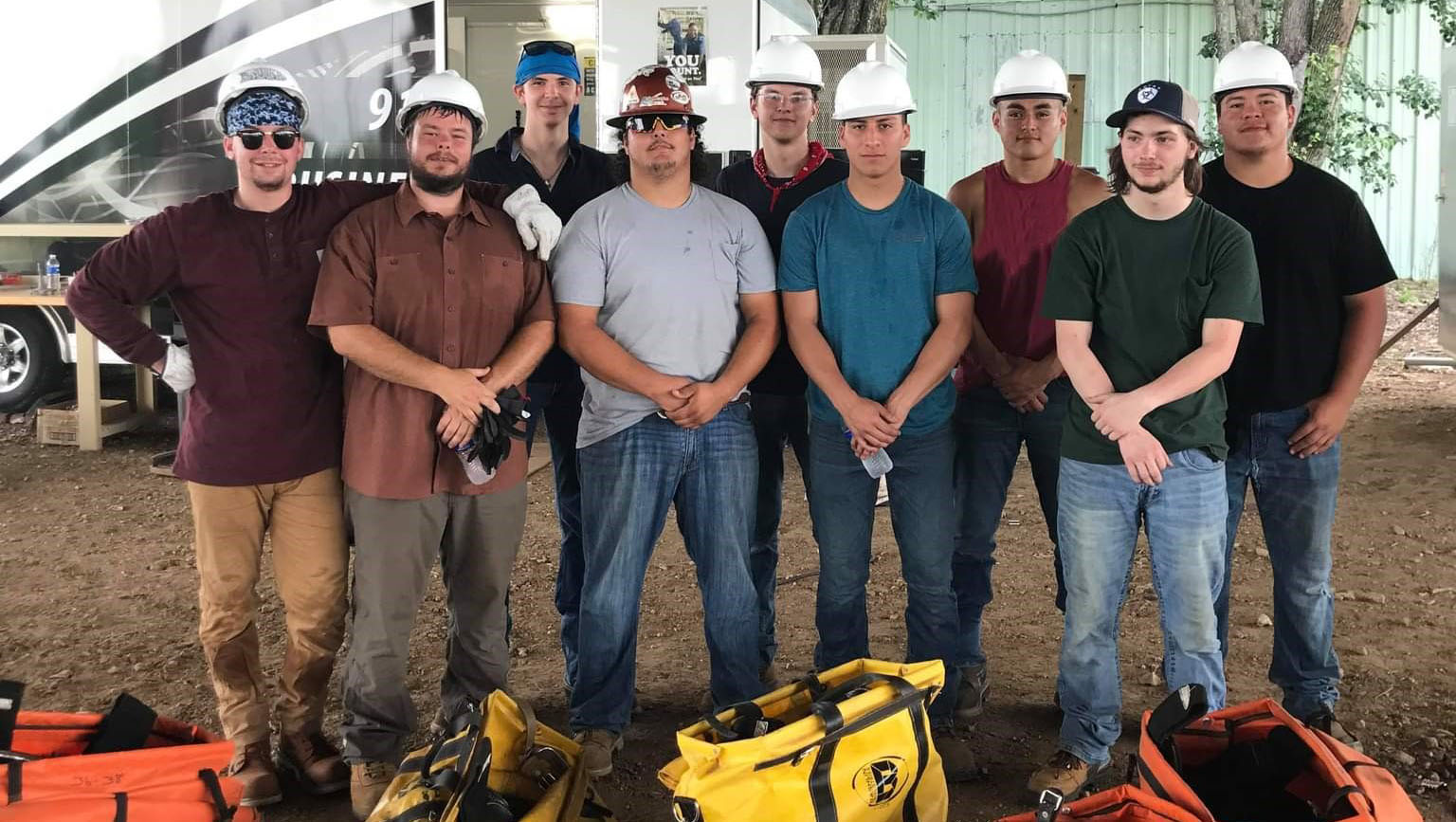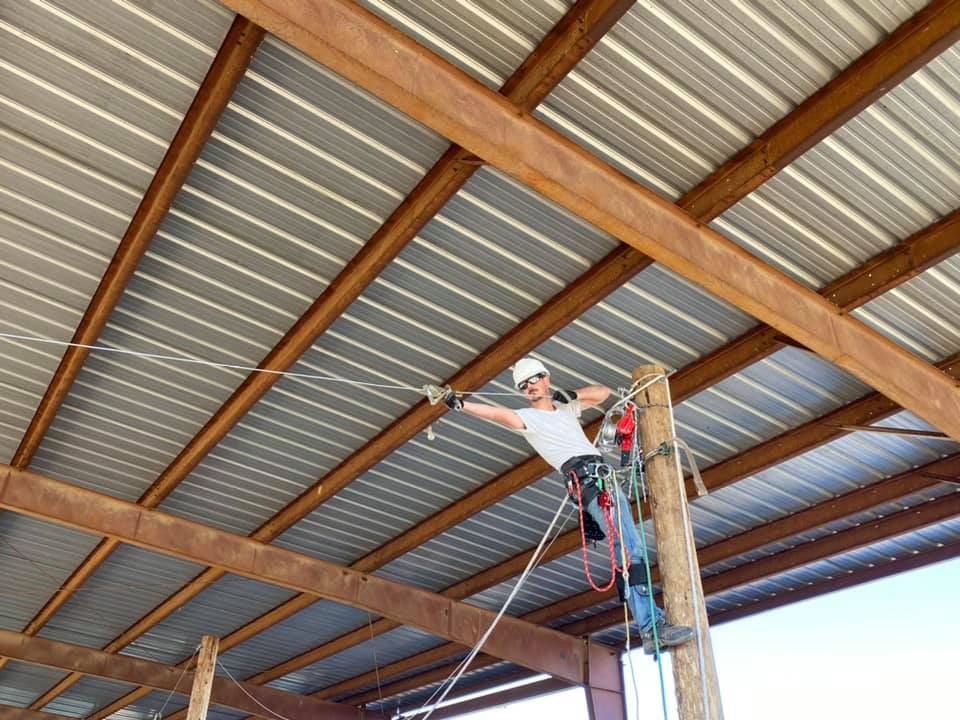
In response to the COVID-19 pandemic, the Cherokee Nation Career Services began developing programs for dislocated workers by offering training in different trades. After the success of the High Voltage Lineman training program, Cherokee Nation Career Services asked OSU Institute of Technology for help with additional training for fiber technicians.
OSUIT Division of Workforce & Economic Development (WFED) has partnered with Cherokee Nation Career Services and the Muscogee Nation to offer a non-credit certificate program, Fiber Technician Training.
“This is a significant program for OSUIT to be involved with,” said Na-komas Blackford, workforce training coordinator at OSUIT. “The broadband industry is growing and expected to continue growing in Oklahoma. OSUIT specializes in high-demand training, and this is one area we did not want to miss out on.”
OSUIT WFED provides the instructors, curriculum, training supplies and related equipment and the Cherokee Nation provides the students.
“We knew we had a lot of Cherokees that were dislocated or laid off from their jobs due to the COVID-19 pandemic, so we wanted to come up with additional ways to get more Cherokees trained in high demand occupations,” Hunter Palmer, Cherokee Nation economic development manager, said in a recent interview with the Cherokee Phoenix.
The CNCS program, which began in fall 2020, has already had eight students complete the program and now work in the field. Eight additional students are currently on internship with another cohort of 11 who began their training this June.
The program has evolved and expanded to offer additional training in Henryetta for the Muscogee Nation.
“The Muscogee Nation heard about our early success with this training and requested the same type of training for their Reintegration program,” said Blackford, workforce training coordinator at OSUIT. “It will be structured a little differently, but the first cohort is scheduled to start in Henryetta on July 12.”
This short course training program is designed to train individuals in the fiber technician
trade. Fiber technicians work in the telecommunication industry to install and repair
fiber optic cables.
Classes include pole climbing and learning to climb in the power zone, jigging or pulling fiber from start to finish, introduction to fiber splicing (residential and commercial), learning to splice, hanging strand and fiber (lashing them together), handling self-support and sagging to proper tension, and advanced fiber splicing and troubleshooting.
At the end of the training, successful students receive certifications of achievement,
OSHA 10 (occupational safety and health administration, 10 hours) certifications and
CPR certifications.
“This training currently has an employment placement rate of 100%,” said Blackford. “The average Fiber Technician salary in the United States typically falls between $46,400 and $59,380, although it does change with each employer. We have seen several of our students that complete the program on track and make a significantly higher first-year salary than what is reflected in the top of that range.”
When the program first began, the training was two months total, and then students went straight to work. After collaboration with industry partners, the Cherokee Nation and OSUIT WFED agreed to a different structure for Cohort 2 and beyond. The students will now spend one month in training, one month on internship with the supporting industry partners and then return for a final month of training.
The program is a collaboration among OSUIT, CNCS and the Muscogee Nation and includes other industry partners. Ervin Cable has been an enormous supporter from the very first class in Tahlequah. Since then, several other companies have expressed interest in supporting this program and taking on interns, including Superior Utilities, USA Cable and East Central Electric.
The certificate course offered in Tahlequah is currently open to Cherokee Nation citizens and other individuals who are able to qualify for CNCS federal grants, such as displaced workers. This program is provided through CNCS, which is supported through a federal grant and other allocated tribal funds. The certificate course offered in Henryetta will be open to qualified Muscogee Nation citizens.
Prospective students can apply by contacting Travis Gulley at 918-453-5555 or travis-gulley@cherokee.org for the Tahlequah program or Mark Harjo at 918-549-2632 or marharjo@mcn-nsn.gov for the Henryetta program.
